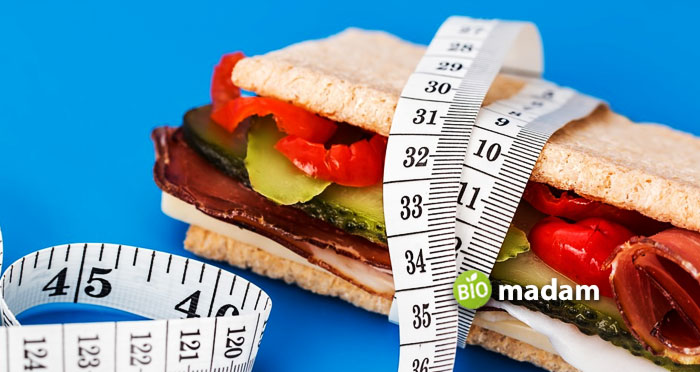It’s no secret that nutrition plays a huge role in our overall health. Eating unhealthy foods can lead to weight gain, diabetes, heart disease, and other serious medical conditions. On the other hand, eating healthy foods regularly can help you lose weight and improve your physical and mental health.
But how do you make sure you’re getting enough of the right kinds of food for optimal health? The answer is simple: regulate your nutrition!
Regulating your nutrition means making conscious decisions about what types of food to eat daily so that you get all the essential macro and micronutrients while avoiding unhealthy processed ingredients.
This article will discuss several ways to regulate your nutrition to lose weight and become healthy again.
Portion Control
Everybody knows that eating too much is bad for your health, but controlling how much you eat at every meal can be a challenge altogether. To help regulate portion size, use smaller plates and bowls whenever possible. You may also want to invest in measuring cups and spoons or a food scale so you can accurately keep track of what you’re consuming.

On the other hand, if you’re getting too little of the essential nutrients your body needs, consider increasing the portion size of nutrient-dense foods such as fruits, vegetables, whole grains, and proteins. You can also add healthy fats such as nuts, seeds, avocados, and olive oil to help you get more of the essential nutrients your body needs.
Professional Food Plan
A professional food plan can help you regulate your nutrition while providing you with the variety of foods and flavors that you need to stay on track. According to the expert team from Noom, a 3 month weight loss plan is sometimes all you need to get clear guidelines on which types of food and how much of each food will help you reach your health goals. These nutritional plans take your food preferences into account and create a personalized, meal-by-meal plan that you can use to help regulate your nutrition.
Additionally, a dietitian or nutritionist can create a meal plan tailored to meet your specific health needs as well as your lifestyle. For instance, if you’re trying to lose weight and manage diabetes, they can create a meal plan that fits both needs.
Mindful Eating
Mindful eating is a practice of paying close attention to your cravings and hunger cues throughout the day. Taking the time to savor each bite of food while being aware of how your body is responding can help you regulate your nutrition and prevent overeating, let you savor the flavors of your food, and can help you identify potential triggers that lead to unhealthy eating habits.
For instance, if you’re feeling stressed or overwhelmed, take some time to pause and assess why you’re eating. If it’s out of boredom or anxiety, try to find alternative activities such as going for a walk or reading a book.
However, if you have a snack craving, then there are many healthier options available to you such as fresh fruit, nuts, or seeds.
Meal Prepping
Meal prepping is an excellent way to make sure you’re getting the right kinds of food in the right amounts. Meal prepping involves planning out all of your meals for a week or more in advance and then preparing them at one time. This not only saves you time but also ensures that you have access to healthy options when cravings hit.
You can also use meal prepping as a way to regulate your nutrition by making sure that every meal contains the essential nutrients you need. For instance, if you’re trying to lose weight, make sure each meal includes lean proteins, vegetables, and whole grains.
Drink Plenty of Water
Water helps your body stay properly hydrated and is essential for all cellular processes. Drinking enough water throughout the day can also help you regulate your nutrition by keeping you full and preventing overeating.
The recommended water intake for adults is eight 8-ounce glasses per day, though the exact amount you need may vary depending on your activity level and age. Staying properly hydrated can also help reduce fatigue, improve concentration, and promote healthy digestion.
Snack Smart
Snacking is often seen as an unhealthy habit due to the availability of high-calorie, low-nutrient snacks like chips and candy bars. However, snacking can help regulate your nutrition if you choose the right snacks.
Healthy snack options include fruits and vegetables, nuts and seeds, yogurt, whole grain crackers with cheese or hummus, hard-boiled eggs, and smoothies. If you’re feeling hungry between meals, opt for a healthy snack to help regulate your nutrition and keep you full until the next meal.

Regulating your nutrition is a key part of achieving and maintaining good health. With the right strategies in place, you can set yourself up for success on your weight loss journey and become healthy again.
By following these seven tips—creating a professional food plan, practicing mindful eating, meal prepping, snacking smartly, drinking plenty of water, exercising regularly, and getting enough sleep—you will be well on your way to reaching all of your health goals!

Hi, they call me Jenna, and I am also known for achieving a gold medal during my Ph.D. in science life. I always had a dream to educate people through my utmost writing hobby. So, I chose this blogging path, and Biomadam gave me this opportunity to present for them. I now stand to entertain you. Continue reading my articles & discuss if you’ve any confusion through the comment section below.

